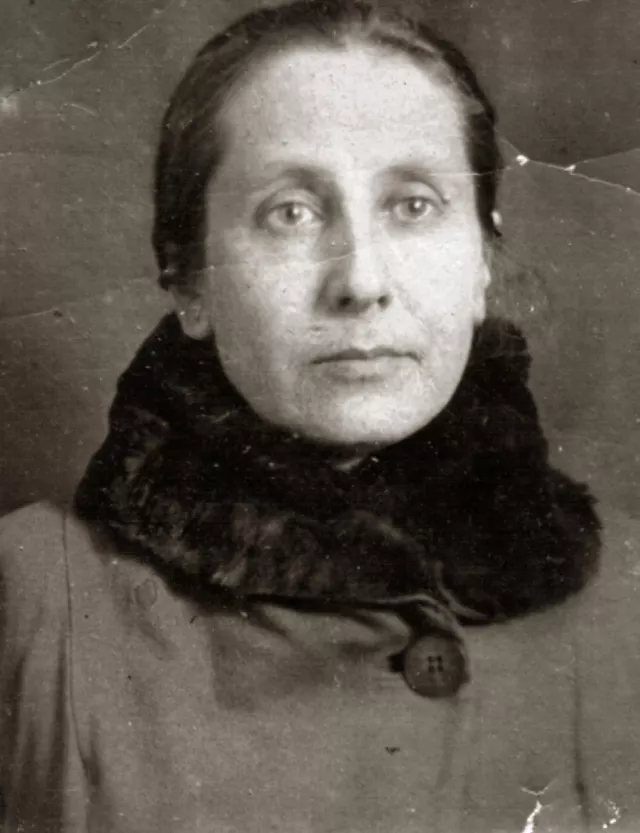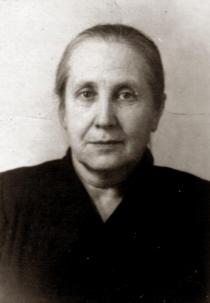This is my mother Rozalia Ledskaya. Mother sent this picture to me when I was in Kazan'. I asked her to take a picture. I wanted to have her picture on me. I have kept picture during the entire war period. The picture was taken in Moscow in 1941.
I was born in 1923. Father left us shortly before I was born. He had another family. That is why I know so little about my father's family. Mother did not like talking about father, and I did not ask much about him. I considered father to be a man who had broken my mother's life. It is an unpleasant recollection for me. My father was not interested in my life either. I treated him likewise. I practically did not know him. When I was born, the year of 1923, there was a terrible unemployment. Mother lost her job and remained unemployed for three years. We lived on father's alimony and on monthly child support in the amount of 7 rubles. We were indigent.
Mother made up her mind to get educated during the period of her unemployment. When I was two, she entered Moscow Pharmaceutical School. In a year she was able to get a job in the pharmacy and to transfer to the evening department. She worked and studied. In 1928 she got a diploma of a pharmacist. At the beginning of the 1930s she was employed at the pharmacy.
Mother never got married again after she divorced father. She lived only for me. I was the essence of her life. Mother did her best to bring me up. She tried to teach me how to read and write in Yiddish. But I was not good at it. Either I was a poor student or my mother was a poor teacher. Mother did not tell me about Jewish history and religion. She did not observe Jewish traditions and did not mark holidays. Maybe it was caused by the struggle of the Soviet regime against religion. Mother understood that I would be raised an atheist at school and she did not want to make my life more difficult. During the weekend my mother and I used to ski during winter and in summer time we took long strolls and went to the forest to gather berries and mushrooms.
In 1941 the pharmacy my mother worked for was turned into military hospital for the wounded. Mother did not want to be evacuated. She had worked there for the entire period of war. In October 1941 there was air-raid on Moscow. Demolishing bomb hit the park located by our house, which was considerably fractured so that it was impossible to live in it. First mother spent night at work. Then father decided go in evacuation and suggested moving in his apartment, but mother refused and kept living in our dilapidated house. When our troops came to Moscow for reorganization in spring 1942, I went to Ispolkom to get apartment for my mother. They gave promises me but did not do anything. After Stalingrad battle our regiment was in Moscow again and I went to Ispolkom to remind them of their promise. Finally mother was given a room of 7 square meters in the communal apartment in the basement where three more families lived. When mother said that she lived with her son, she was told without any embarrassment that her son was at war and could be killed. She remained living in that basement. I lived in that room after I was discharged from hospital. We had lived there until 1957. We were not put on housing record because the occupant space requirement was 2 sq.m. per person, i.e. according to the Soviet law 3.5 individuals could live in our apartment.


















